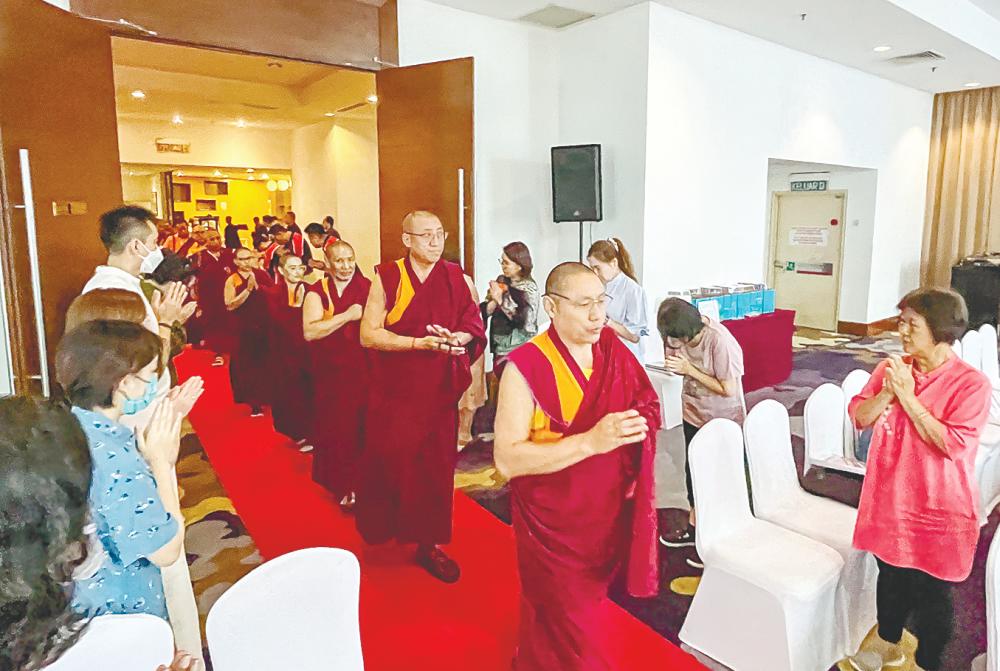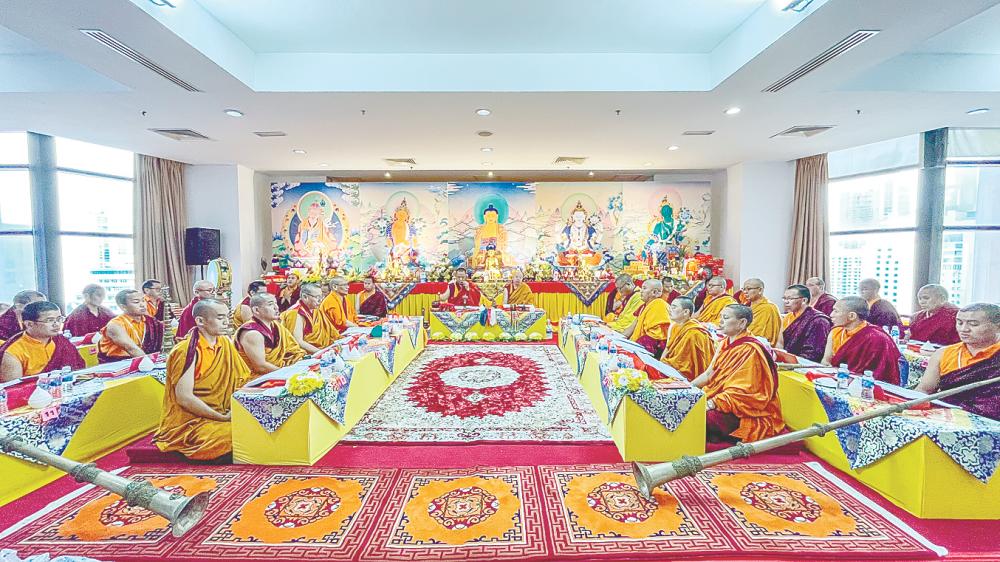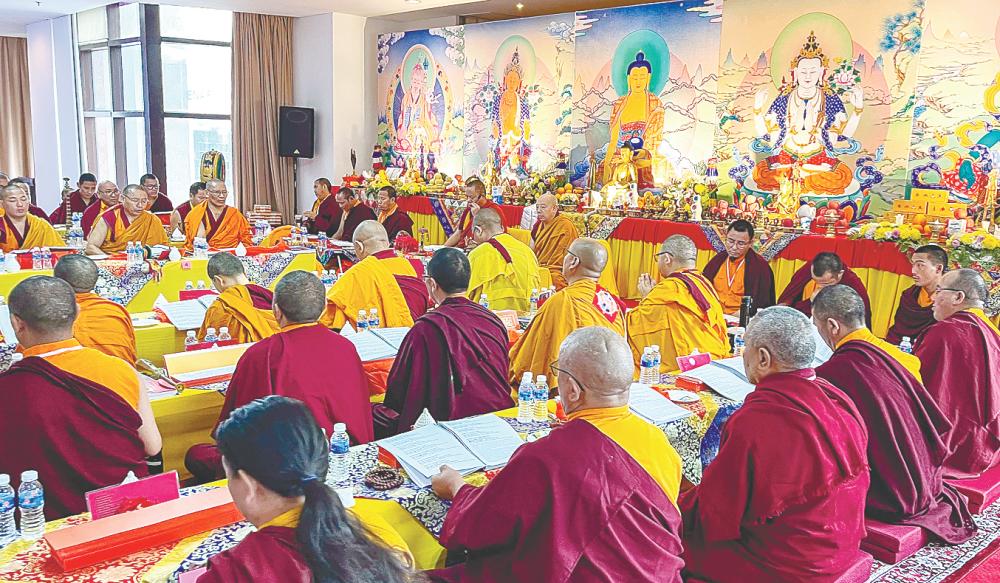ABOUT 30 Buddhist monks from Nepal, India and Bhutan have gathered for the Malaysia Grand Tripitaka Recital Initiative 2024 to recite 103 volumes of Tripitaka for
15 days until this Sunday at the Berjaya Times Square Hotel.
The monks or Sangha members, are from different schools of Tibetan Buddhism: Nyingma, Sakya, Kagyu, Gelug and Jonang.
These monks are led by Khenpo Pema Dorje Rinpoche from Namdrolling monastery in South India and Khenpo Khonchok Namgyal Rinpoche from Pal Biru Monastery Nangchen in Qinghai, Tibet.
Tripitaka means triple basket, a traditional term for the ancient collections of Buddha’s sacred scriptures. The Tripitaka, or Kangyur in Tibetan, is considered a holy book of Buddhism.
The Tripitaka contains the entire collection of words and teachings of Buddha, compiled in 108 volumes and divided into three categories: Sutra Pitaka, Vinaya Pitaka and Abhidhamma Pitaka.

Sacred texts
According to the Buddhist scripture, “In the future, at the time of degeneration, Buddha will be manifested in the form of
sacred texts.”
As such, Tripitaka recitals are performed when faced with major obstacles or to prevent terrible things from taking place and the consistent recitals alleviates negativity and in return, gives joy and happiness.
On Monday, the Manhattan V room was serene and peaceful but a
high level of energy could be felt throughout the event as the
monks recited Tripitaka with undivided attention.
The monks in their signature maroon and yellow robes sat together on a raised stage with beautiful illustrations as the backdrop and
read the sacred text without pause for two hours.
Sounds of conchshells and traditional Tibetan music instruments filled the air during the last hour of the recital
During a short break, the two monks spoke through a local Buddhist nun and translator
Dr Tenzin Dadon, who shared reading and attending the recitation of Kangyur is important.

Benefitting mankind
“We dedicate all our peace, love and kindness to everyone,” said Khenpo Pema.
As attendees pondered what kind of change it will bring to the individuals attending the recitation, Khenpo Pema said they cannot say that the recital
will bring bliss, peace and happiness because it depends on an individual.
“We are giving them peace and happiness but it relies on individuals based on (their) cause, condition
and karma accumulated in (their)
past lives.
“By hearing the citation, seeing and touching it, it will leave us an imprint. For example, when it rains, it falls on the soil. If there is a seed and it is rotten, it does not germinate but
if the seed is in good condition, it
will germinate,” explained Khenpo Pema.
Hence, human souls are the
same as it depends on the individual and what they take away from the sessions.
“We are giving the imprint,” added Khenpo Pema.
Meanwhile, Berjaya Group founder and advisor Tan Sri Vincent Tan’s mother Low Siew Beng, 97, who has been attending the reading since the first day, expressed hope for peace in the world, for Malaysia and to
all mankind.
Recital timeslots: 8am to 10am, 10.30am to 12noon, 2pm to 4pm
and 4.30pm to 6.30pm.









